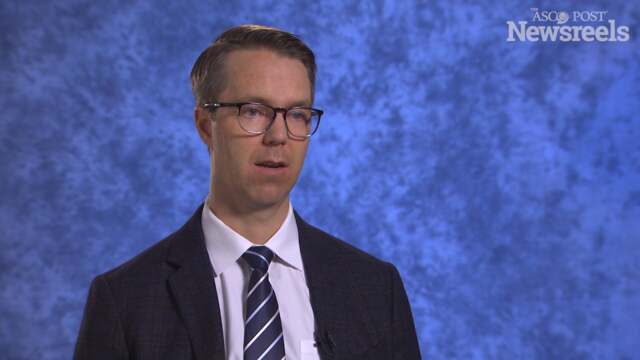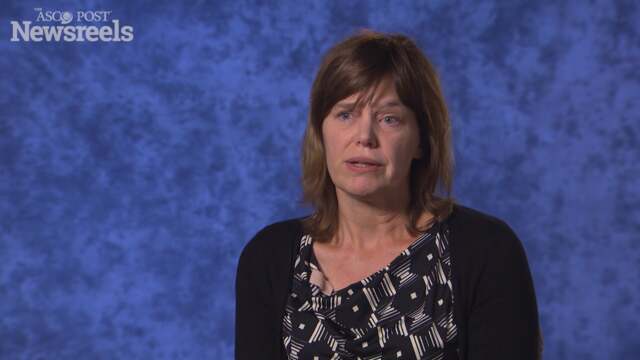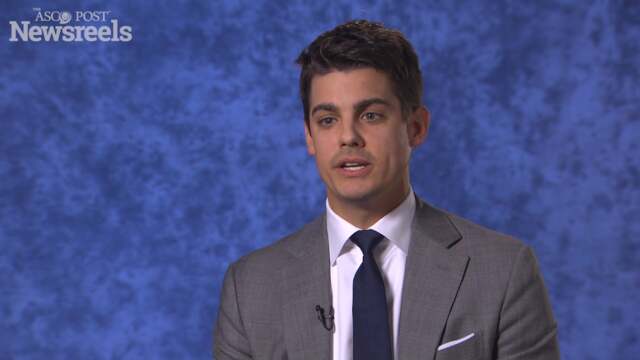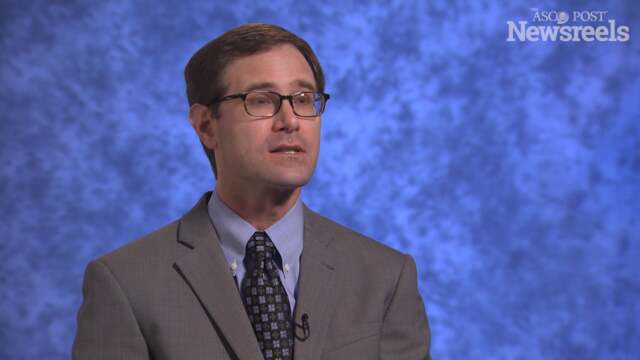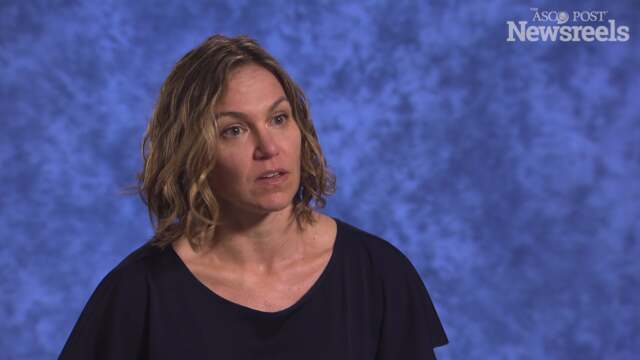Michael Hoerger, PhD, on Early Palliative Care: Study Results
2017 Palliative Care in Oncology Symposium
Michael Hoerger, PhD, of Tulane University, discusses the effect on quality of life, depression, and end-of-life care when physicians focus on coping or on decision-making and advance care planning (Abstract 154).
Eric Roeland, MD, of the University of California, San Diego, summarizes key papers delivered at the Palliative Care Symposium on managing insomnia, fatigue, nausea, and the ways in which physical therapy and nausea can reduce the side effect burden.
Jenske Geerling, NP, of the University Medical Center Groningen, discusses findings from a multicenter trial on patient education, pain reduction, and quality of life (Abstract 203).
Jacob J. Strand, MD, of the Mayo Clinic, discusses tips and tools that clinicians can use to develop universal precautions for prescribing opioids in oncology and palliative care practice.
Jeremy Hirst, MD, of the University of California, San Diego, offers concrete advice on assessing the need for these medications, using them safely, and knowing when to deprescribe them.
Abby R. Rosenberg, MD, of Seattle Children’s Hospital, discusses study findings on a skills-based intervention that helped teens and young adults with cancer manage stress to improve their quality of life and reduce distress (Abstract 176).
